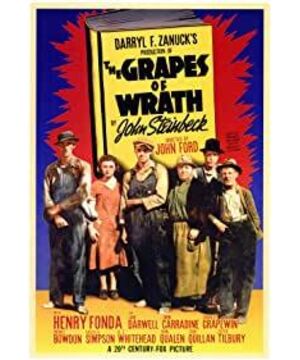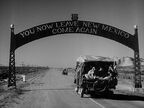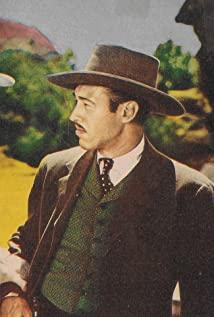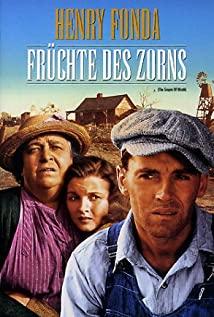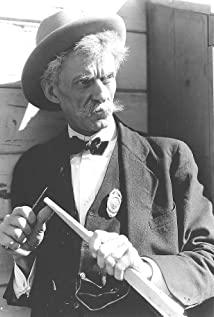Grapes of Wrath" is the representative work of American writer Steinbeck. Steinbeck won the Nobel Prize in 1962. Shows sympathetic humor and a keen observation of society.". (Thanks to Wiki)
So it is obvious that as his most outstanding masterpiece, "Grapes of Anger" itself uses realistic techniques to show the analysis and thinking of society.
The background of the novel is the economic panic in the 1930s in the United States, and a large number of farmers went bankrupt and fled. Steinbeck used the experience of the Jodd family (Ok, Oklahoma, a poor and despised bastard) as the main line, describing that they were driven out of the hometown where they lived for generations by big companies and sold everything. When I came to the west, I realized that this place is not as beautiful as the flyers advertised. The novel describes the things and people they encountered along the way, the oppression, unemployment, hunger, and hardship they (including many immigrants in the same situation) endured. In these circumstances, they awakened and grew up.
I scanned the book for a few chapters and couldn't finish it. However, I feel that replacing the words and contexts will also show the reality. I wonder if I can win the Nobel Prize?
If I write it in a Chinese version:
China's famine in the 1960s (some people called it "three years of natural disasters" and then "three years of hard times"), and a large number of farmers went bankrupt and fled the famine. I take the Wang Agou’s family (Henan guys, farmers in Henan, which is considered by other places, including Henan citizens to be "poor and despised inferior bastards") as the main line, and describe them being affected by certain urban and rural systems. Trapped in the hometown where he has lived for generations, and secretly fled to the city of Jiangsu, only to find that this place is not as beautiful as word of mouth. In the novel, I described the things and people they encountered along the way. They (including many refugees in the same situation) endured all kinds of oppression, battled wits with the local military administration, were subject to the control of public authorities, and how they ate grass. The hunger of not having enough food, the sorrow of everyone changing their children to food, in these circumstances, they eventually swelled and died.
But I understand that because I lack feelings, I naturally cannot write. Fortunately, someone wrote it. Yang Xianhui's "Jiabiangou Chronicles" was once banned and then lifted. Later, although the book was allowed to be sold, it was again banned from publicity. There is also his "Dingxi Orphanage Chronicle", which has a similar perspective and has experienced the same fate.
A few years ago, that was the time when martial arts fell and online literature rose. At that time, I was thinking about a question. I was never an evasive person. I have always been interested in realistic books (not stories about shampoo girls and wage earners, please see "Friends"). Why do I I rarely read books on such realistic subjects.
Later, when I grew up, I understood that that was not my problem. In China, after the era of martial arts, online literature was immediately followed. In this trend, you can always easily see writers and works using metaphors, symbols, etc., and even the trend of writing is more and more magical and more surreal.
In China in reality, the times have changed tremendously, the social levels and contradictions are so clear, so many things worth recording, so many realistic subjects, but the corresponding heavy books are always missing. Those precious themes are taken into the grave as people age, and cannot be commemorated.
Maybe we are naive, we don't know how to face reality, and we always bury ourselves in the void world to escape. Only by breathing deeply in those stallion literature can we have enough oxygen to return to the real world and work hard.
But I don't want to give up easily, thinking that China is such a lack of writers who pay attention to society.
Perhaps the encounter with "Grapes of Wrath" is a hint: The publication of "Grapes of Wrath" caused an uproar. Some comments claimed that the book was obscene and distorted. In August 1939, Kern County, California, once banned the book from entering the county's public schools and libraries. Steinbeck wrote: The slander from the big landlords and bankers is simply terrible. Recently they even spread rumors that the Okks wanted to kill me because I lied to them.
Maybe, I should go to those vulgar and depraved books called obscene and distorted, to find the book I want.
Perhaps, "Grapes of Wrath", no matter its content or destiny, is a realistic novel, a Chinese metaphor.
View more about The Grapes of Wrath reviews


